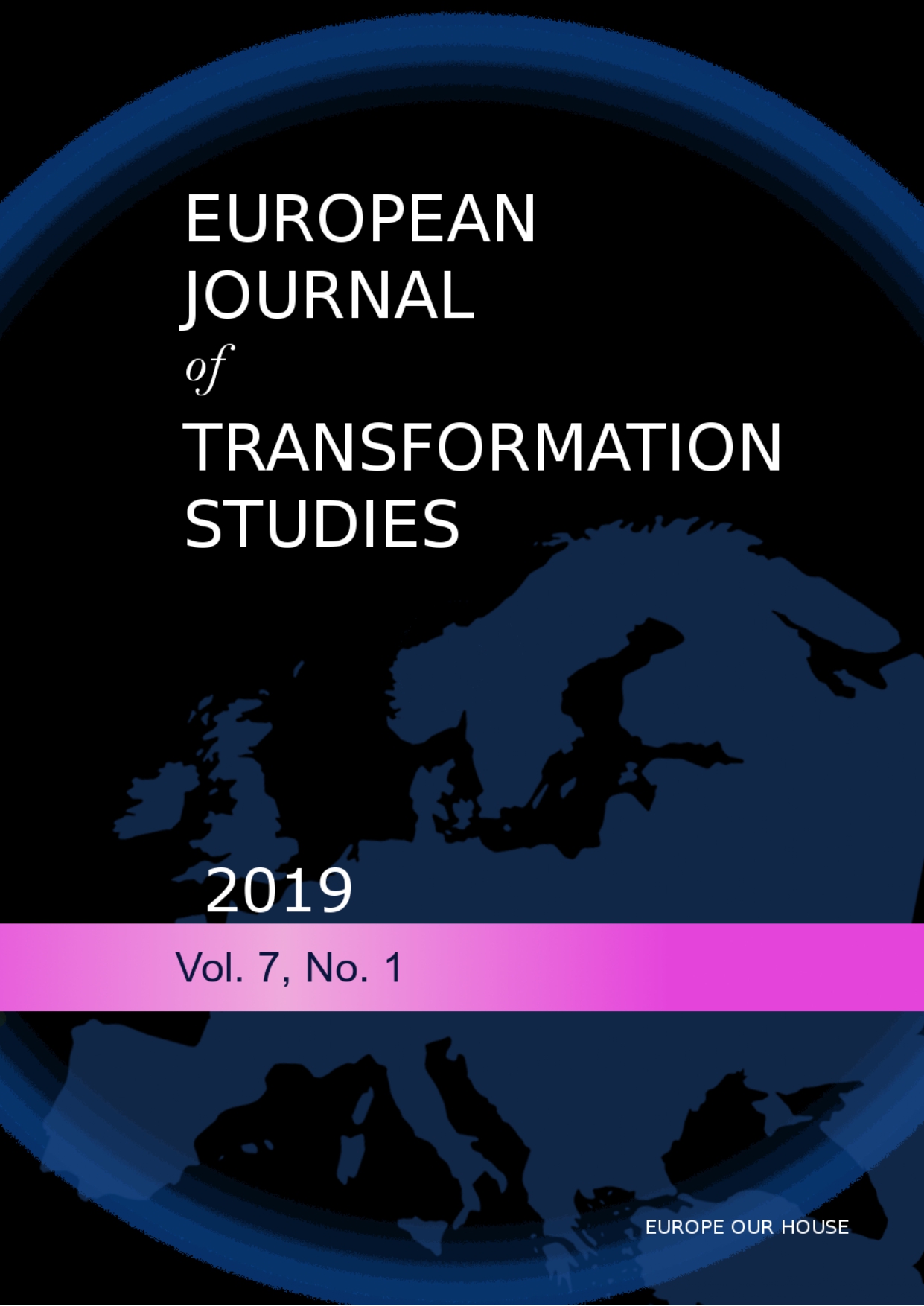Free movement of workers and the EU integration processes, experience of the Polish immigrants in France
Słowa kluczowe:
European Union, Free Movement of Workers, Stereotypes, Immigrant Worker, Integration at the WorkplaceAbstrakt
Free Movement of Workers is the fundamental right of EU citizens and one of the key principles of the European Single Market. Economic and migration crises however revealed that the immigrant workers’ issue raises high-tension debates in Member States. The focus of this paper is on the Polish blue-collar immigrant workers in France. Their situation in the host country and their interactions with the French society are analysed through their experience at the workplace. First, the working conditions of Polish immigrants in the French labour market after 2008 are examined. The paper then discusses the cultural differences at the workplace, as well as the French employers’ and clients’ attitudes towards Polish workers. Finally, the impact of Free Movement of Workers on immigrant’s adaptation and integration processes is studied.
Downloads
Bibliografia
Babbie, E., (2007), Badania spoleczne w praktyce, Wydawnictwo Naukowe PWN, Warsaw;
Becker, H.S., (2009), Outsiders, L'étude de sociologie de la deviance, Métailié, Paris;
Boudon, R., (1983), La logique du social, Hachette, Paris;
Crozier, M., Friedberg, E., (1977), L'acteur et le système, Seuil, Paris;
D’Iribarne, P., (1993), La logique de l’honneur, Gestion des entreprises et traditions nationales, Seuil, Paris;
Directive 2004/38/EC of the European Parliament and of the Council of 29 April 2004 on the right of citizens of the Union and their family members to move and reside freely within the territory of the Member States;
European Union Charter of Fundamental Rights, Article 45;
Glaser, B.G., Strauss, A.L., (2006), Discovery of Grounded Theory, Strategies for Qualitative Research, Sociology Press, Mill Valley;
Glowny Urzad Statystyczny, (2018), Informacja o rozmiarach i kierunkach czasowej emigracji z Polski w latach 2004 – 2017; Accessed April, 16 2019; https://stat.gov.pl/obszary-tematyczne/ludnosc/migracje-zagraniczne- ludnosci/informacja-o-rozmiarach-i-kierunkach-czasowej-emigracji-z-polski-w-latach-2004-2017,2,11.html?pdf=1
Goffman, E., (1993), Les rites d’interaction, Les Éditions de Minuit, Paris;
Goffman, E., (1996), Stigmate, Les usages sociaux des handicaps, Les éditions de minuit, Paris;
Gresle, F., Panoff, M., and Perrin, M., (1994), Dictionnaire des sciences humaines, Anthropologie/Sociologie, Nathan, Paris;
Institut national de la statistique et des études économiques, (2014), Les immigrés récemment arrivés en France; Accessed April, 16 2019; https://www.insee.fr/fr/statistiques/1281393
Paczkowski, A., (1979), Prasa i społeczność polska we Francji 1920-1940, Ossolineum, Cracow;
Patok, M., (2017), Le stéréotype national: l’exemple de la peur du plombier polonais, in Identités, démocratie, frontiers, 93-104, L’Harmattan, Paris;
Patok, M., (2015), Stereotypy narodowe a normy i kontrola spoleczna w srodowisku polskich pracownikow we Francji po 2004 roku, Komunikat z badan, in Normy, dewiacje i kontrola spoleczna, XVI, 148-163, IPSIR, Warsaw;
Pezda, J., (2001), Polska diaspora we Francji do 1870 roku, in Polska diaspora, 167-177, Wydawnictwo Literackie, Cracow;
Regulation (EC) No 883/2004 of the European Parliament and of the Council of 29 April 2004 on the coordination of social security systems; Regulation (EU) No 492/2011 of the European Parliament and of the Council of 5 April 2011 on freedom of movement for workers within the Union;
Śladkowski, W., (1980), Emigracja polska we Francji 1871-1918, Wydawnictwo Lubelskie, Lublin;
Treaty on the Functioning of the European Union, Article 45;
Valade, B., (1997), La Représentation du Social, in The Classical tradition in Sociology, The European tradition, II, 384-402, SAGE Publications, London.

 Uniwersyteckie Czasopisma Naukowe
Uniwersyteckie Czasopisma Naukowe



